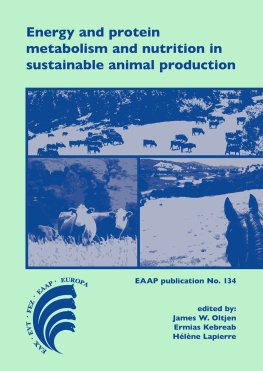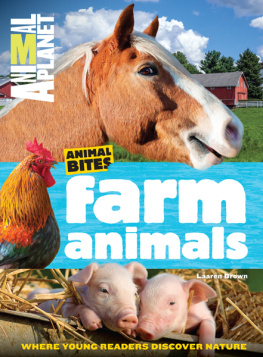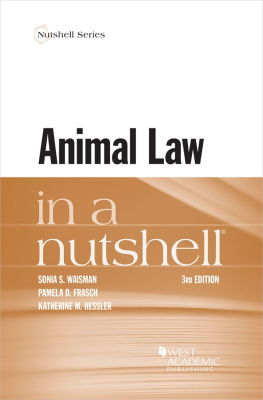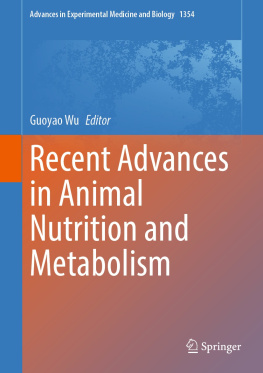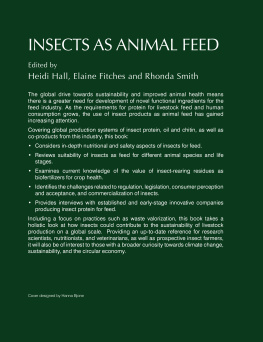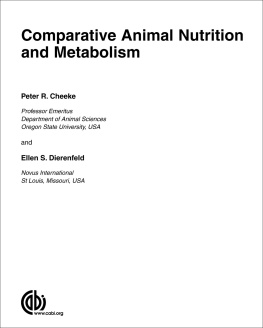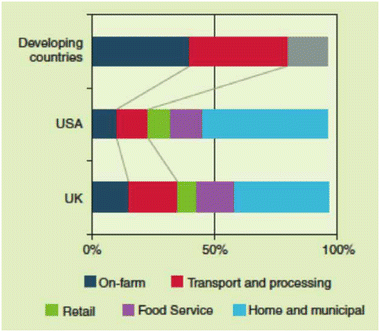Introduction
The global food system is experiencing profound changes as a result of anthropogenic pressures. The ever-increasing human population (to reach 9 billion by 2050) together with changes in consumption patterns (i.e. increasing demand for livestock products) caused by urbanization, increasing incomes, and nutritional and environmental concerns, are shaping what we eat, who eats, and how much, more than ever. The double burden of nutrition (overconsumption and under-nutrition) is defining research agendas, policies and conceptions about food in different ways around the world.
Against this background is a global food system that will have to improve its resource use efficiency and environmental performance significantly in order to ensure the sustainability of global food production and consumption within established planetary boundaries of greenhouse gas emissions, and water and nutrient use amongst others.
Livestock, the largest land use sector on Earth is an important part of this puzzle and many solutions to the challenges facing how to feed the world sustainably lie in how we manage this sector. This brief paper aims to discuss some of the key ways in which we could increase the sustainability of the world food system, and some of the challenges to overcome.
Key challenges: the future demand for food
Table ), is that a shift to diets with more animal products and fats, is likely to happen, mostly in the developing world as a result of increased incomes and urbanization. While the consumption per capita of cereals is likely to stabilize, population growth will increase the total quantities of both meat (almost doubling) and cereals (50%) needed to feed the world in 2050.
Table 1
Projections of global demand for food to 2050 (Alexandratos and Bruinsma, ).
| 2005/2007 | 2050 |
|---|
Population (millions) | 6,584 | 9,306 |
Cereals for food (kg per capita) | | |
Cereals for all uses (kg per capita) | | |
Meat consumption (kg per capita) | 38.7 | 49.4 |
Oil crops for food (kg per capita) | 12.1 | 16.2 |
Oil crops for all uses (kg per capita) | 21.9 | 30.5 |
Meat production (million tonnes) | | |
Cereal yields, rice paddy (t/ha) | 3.32 | 4.30 |
Arable land area (million ha) | 1,592 | 1,661 |
The supply response of the global agriculture and livestock sectors is likely to be able to accommodate these demand increases (Alexandratos and Bruinsma, ). Hence, food production can be attained under current productivity and demand trends, but not necessarily making inroads in the improvement of our environmental goals.
Several authors (Foley et al ., ) have suggested different mechanisms for improving the sustainability of the world food system. The three most often mentioned are:
Increasing productivity (managing the supply side): Increasing agricultural productivity and overall food production have been the pillar for designing strategies for feeding the world since the industrial revolution. Notable gains have been made in many parts of the world (developed countries and Latin America and Asia). There is significant ongoing research on how to sustainably intensify global food production, how to bridge yield gaps of crops and livestock and how to improve value chains so that both producers and consumers benefit from potential yield increases, while using less, the same, or slightly more inputs.
Reducing waste in food value chains. This subject has received attention recently (Godfray et al ., ) shows that in the developing world these losses occur mostly due to post-harvest activities like deficient harvesting and storage methods, pests, export regulations and others. In the developed world this occurs mostly at the post-consumption stage, due to poor management of product sell-out dates in the value chain and direct food disposal by consumers (i.e. discarding food from fridges).
Consuming more sustainable diets (managing the demand for food): There is evidence that modifying what we eat could have significant impacts on the use of resources like land and water, it could reduce GHG emissions and it could have important health and nutritional benefits. A lot of emphasis has been put in the potential benefits of reducing red meat consumption and the promotion of healthy diets (Stehfest et al ., ). These studies have shown that reductions in livestock consumption could lead to reduced land use change, directly from less land clearing for raising animals or for producing feed crops. These land sparing gains, in turn lead to lower GHG emissions in general.
Figure 1
Make up of total food waste in developed and developing countries (Godfray et al ., ).
Table 2
Land use emissions in 2000 and 2050 for the reference scenario and four variants of dietary composition (Stehfest et al., ).
| GtCeq |
|---|
2000 | 3.0 |
2000 reference | 3.3 |
2050 no red meat | 1.7 |
2050 no meat | 1.5 |
2050 no animal products | 1.1 |
2050 healthy diet | 2.1 |
This is a significant finding. However, this space has not been explored sufficiently to provide suitable, practical, regional/country guidance for consumers and for policy makers to effect the necessary changes in local food systems, and to modify consumer behavior. At the global level, this concept has only been studied superficially, and without considering important dimensions such as dietary diversity and cultural preferences extending beyond measures of kilocalorie consumption, and what would be the social and economic impacts of reducing the size of the livestock sector. These additional dimensions are essential for understanding the biological and socio-economic implications of diet sustainability on the global food system. We need to go beyond simplistic recommendations like stop eating meat to make this area of research useful, and provide alternatives and practical guidelines for achieving these kinds of gains. This is of particular importance for the developing world, where livestock product demand projections demonstrate that even with significant consumption growth, consumption per capita will remain significantly lower than in the developed world (IAASTD, ).

